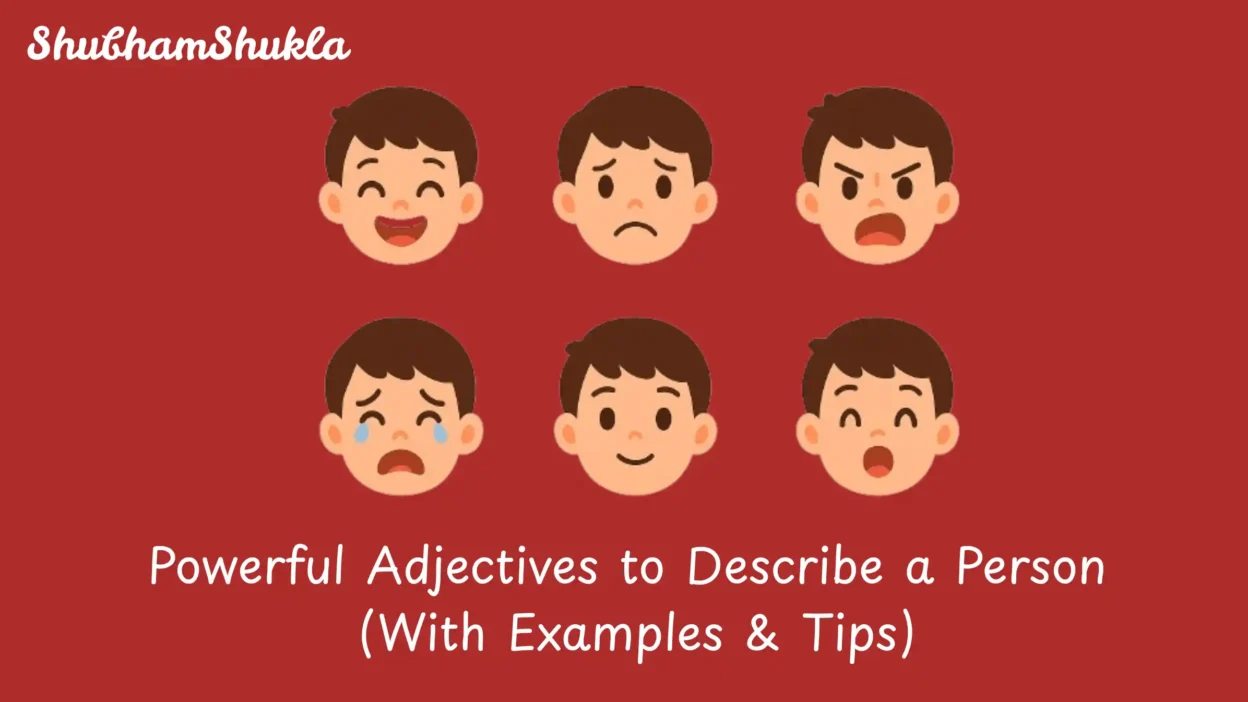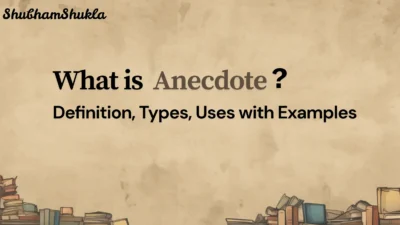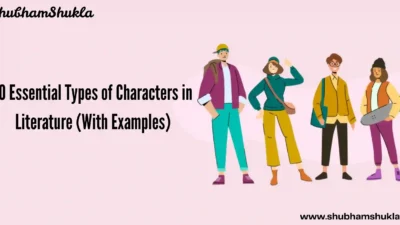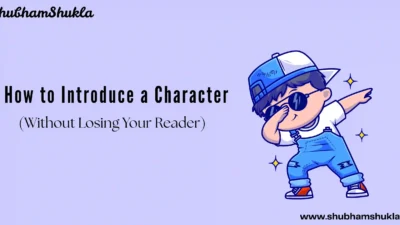Looking for the perfect adjectives to describe a person in your writing, story, or resume? Whether you’re portraying a courageous hero, a quirky friend, or a polished professional, the right words matter. An adjectives to describe a person can shape how readers or listeners feel about them instantly painting a picture of personality, attitude, or appearance.
In this guide, you’ll find some powerful adjectives, organized into helpful categories, complete with examples to inspire your next character sketch or personal description.
What is Adjective?
Adjective (noun): A word that describes a noun. When describing people, adjectives help explain their personality, appearance, behavior, or style.
Choosing the right adjective can bring your characters, friends, or coworkers to life. Whether you’re writing fiction, a blog, or building a character bio, this list will help you find just the right word.
How to Choose Right Adjectives to describe a person
To describe someone effectively, think about:
- Their strongest personality traits
- How they interact with others
- What they look and sound like
- The impression they leave behind
Once you understand the person, decide if your adjectives should be positive, funny, strong, negative, professional, or style-focused.
You may also read: Top 10 Chetan Bhagat Books – #6 Will Leave You Speechless!
Positive Adjectives to Describe a Person
Examples:
- Emma was always cheerful and kind, the type who remembered your birthday and made you feel heard.
- Luca’s authentic nature made people trust him instantly.
Adjectives:
- Adaptable: Easily adjusts to changes
- Affectionate: Shows love and care
- Agreeable: Pleasant and cooperative
- Attentive: Pays careful attention
- Authentic: True to oneself
- Brave: Courageous in difficult situations
- Calm: Relaxed and untroubled
- Candid: Honest and straightforward
- Caring: Shows empathy and concern
- Cheerful: Happy and optimistic
- Compassionate: Feels and shows sympathy
- Creative: Imaginative and innovative
- Curious: Eager to learn and explore
- Daring: Bold and adventurous
- Earnest: Sincere and serious
- Easygoing: Relaxed and carefree
- Empathetic: Understands others’ feelings
- Energetic: Full of energy
- Faithful: Loyal and reliable
- Fearless: Unafraid and bold
- Generous: Willing to give freely
- Gracious: Courteous and kind
- Honest: Truthful and sincere
- Humorous: Funny and entertaining
- Intuitive: Understands instinctively
- Joyful: Full of happiness
- Just: Fair and righteous
- Kind: Caring and considerate
- Loyal: Faithful and reliable
- Magnanimous: Generous and forgiving
- Open-minded: Receptive to new ideas
- Optimistic: Positive outlook on life
- Passionate: Shows strong enthusiasm
- Philosophical: Thoughtful and wise
- Sincere: Genuine and honest
- Sociable: Enjoys social interactions
- Thoughtful: Considerate of others’ needs
You may also like: Top 10 R. K. Narayana Books You Must Read Before You Die
Funny Adjectives to Describe a Person
Incorporating humor into descriptions can help your work and the person you’re describing become truly unforgettable.
Instead of simply “funny,” consider bamboozled for someone who is always perplexed, flibbertigibbet for someone who is wonderfully flighty, or rowdy for someone with a lot of energy.
A person’s clumsy actions or silly faces might instantly make your reader smile. Using such terms enhances individuality and vividness.
Examples:
- Jake was completely bonkers — he wore a cape to school for no reason.
- Tina had a daffy sense of humor that made no sense but always cracked people up.
Adjectives:
- Absurd: Ridiculous and nonsensical
- Bizarre: Strange and unusual
- Blundering: Often makes silly mistakes
- Bonkers: Crazy in a fun way
- Cheeky: Playfully mischievous
- Clownish: Acts like a silly clown
- Cockamamie: Ridiculous and silly
- Corny: Silly in a predictable way
- Daft: Silly and foolish
- Daffy: Silly and quirky
- Dippy: Silly and scatterbrained
- Dopey: Foolish and clueless
- Eccentric: Odd and unconventional
- Flaky: Unreliable and eccentric
- Goofy: Silly and playful
- Harebrained: Foolish and ridiculous
- Hilarious: Extremely amusing
- Kooky: Strange in an endearing way
- Ludicrous: Absurdly ridiculous
- Loopy: Crazy and silly
- Madcap: Impulsive and funny
- Nutty: Crazy in a fun way
- Outlandish: Bizarre and unconventional
- Preposterous: Utterly ridiculous
- Quirky: Unconventionally amusing
- Ridiculous: Deserving of mockery
- Silly: Lacking seriousness
- Wacky: Funny in a crazy way
- Whimsical: Playfully quaint
- Zany: Amusingly unconventional
You may also read: 18Teen Introspect Yourself a Book by Shubh Mittal: Book Review
Strong and Bold Adjectives to Describe a Person
Examples:
- Nina’s resolute mindset helped her lead a team through crisis.
- Marcus was assertive and charismatic, with a presence people naturally followed.
Adjectives:
- Assertive: Self-assured and bold
- Authoritative: Commanding respect
- Brave: Courageous in the face of danger
- Charismatic: Possessing great personal charm
- Commanding: Exuding authority
- Courageous: Facing fear with bravery
- Daring: Willing to take risks
- Decisive: Makes decisions confidently
- Determined: Strongly motivated
- Dominant: Exerts control and influence
- Driven: Motivated to achieve goals
- Dynamic: Energetic and forceful
- Energetic: Full of energy and life
- Forceful: Strong and assertive
- Formidable: Inspiring fear and respect
- Independent: Self-reliant and autonomous
- Influential: Exerting great influence
- Innovative: Creative and original
- Intrepid: Fearlessly adventurous
- Invincible: Impossible to defeat
- Mighty: Possessing great strength
- Motivated: Driven to achieve
- Passionate: Strongly enthusiastic
- Proactive: Takes initiative and action
- Resilient: Quickly recovers from difficulties
- Resolute: Firmly determined
- Spirited: Full of energy
- Steadfast: Firm and unwavering
- Strong-willed: Resolute
- Tenacious: Persistent and determined
- Uncompromising: Firm and resolute
- Unstoppable: Impossible to defeat
- Valiant: Courageously brave
- Visionary: Forward-thinking and innovative
You may also read: 15 Romantic Aadvika Pommu Novels That Will Steal Your Heart
Negative Adjectives to Describe a Person
Negative adjectives to describe a person emphasize undesirable characteristics and are frequently used to depict defects in character or behavior. Words like arrogant, disrespectful, sluggish, selfish, and manipulative might describe a person’s bad impact on others.
These adjectives are useful for character development in narrative or providing honest comments in real life. However, they must be used wisely, reflecting specific conduct rather than pronouncing judgment on personality.
Examples:
- Victor was manipulative and selfish, always spinning things in his favor.
- Lila’s moody nature kept everyone guessing where they stood with her.
Adjectives:
- Arrogant: Overly self-important
- Blunt: Insensitive and direct
- Callous: Unfeeling and insensitive
- Cynical: Distrustful of others’ motives
- Deceitful: Dishonest and misleading
- Demanding: Difficult to please
- Dishonest: Not truthful or sincere
- Egotistical: Excessively self-centered
- Fickle: Frequently changing loyalties
- Greedy: Excessively desirous of wealth
- Gullible: Easily deceived
- Harsh: Cruel and severe
- Hostile: Unfriendly and antagonistic
- Hypocritical: Pretending to be virtuous
- Impatient: Unable to wait patiently
- Inconsiderate: Thoughtless towards others
- Indecisive: Unable to make decisions
- Intolerant: Unwilling to accept differences
- Irresponsible: Not accountable or reliable
- Jealous: Envious of others’ success
- Lazy: Unwilling to work hard
- Manipulative: Controlling others deceitfully
- Moody: Frequently changing moods
- Narcissistic: Excessively self-admiring
- Neglectful: Failing to care properly
- Obnoxious: Extremely unpleasant
- Overbearing: Bossy and domineering
- Paranoid: Excessively distrustful
- Pessimistic: Always expecting the worst
- Petty: Focusing on trivial details
- Prejudiced: Holding biased opinions
- Reckless: Acting without caution
- Rude: Impolitely disrespectful
- Selfish: Concerned only with oneself
- Stubborn: Unwilling to change opinion
- Vindictive: Desiring revenge
You may also like: What is Satire: Definition, Types, Uses with Examples
Professional Adjectives to Describe a Person at Workplace
Professional adjectives for describing a person at work emphasize characteristics that contribute to a productive and happy work environment. Words like dependable, resourceful, imaginative, and collaborative emphasize a person’s dependability, problem-solving abilities, creativity, and team spirit.
These words not only aid in performance assessments and resumes, but also affect how coworkers and superiors perceive one’s professional manner, making them crucial tools in effective workplace communication and career growth.
Examples:
- Rhea was both strategic and supportive, balancing goals with team care.
- Jamal was meticulous and reliable, making him the backbone of any project.
Adjectives:
- Adaptable: Easily adjusts to changes
- Ambitious: Driven to achieve goals
- Analytical: Skilled at logical thinking
- Articulate: Communicates effectively
- Capable: Highly skilled
- Collaborative: Works well with others
- Committed: Dedicated to tasks
- Conscientious: Diligent and thorough
- Creative: Innovative and imaginative
- Decisive: Makes decisions confidently
- Dependable: Reliable and trustworthy
- Diligent: Hardworking and meticulous
- Diplomatic: Tactful in interactions
- Enthusiastic: Shows intense excitement
- Ethical: Adheres to moral principles
- Experienced: Skilled through practice
- Flexible: Easily adapts to changes
- Focused: Concentrates on tasks
- Hardworking: Puts in great effort
- Honest: Truthful and sincere
- Innovative: Creative and forward-thinking
- Knowledgeable: Well-informed and educated
- Leader: Guides and inspires others
- Logical: Reasonable and rational
- Meticulous: Pays attention to details
- Motivated: Driven to succeed
- Organized: Structured and systematic
- Patient: Tolerant and understanding
- Perceptive: Insightful and observant
- Proactive: Takes initiative and action
- Punctual: On time and prompt
- Resourceful: Clever and inventive
- Responsible: Accountable and reliable
- Strategic: Plans effectively for future
- Supportive: Offers encouragement
- Talented: Naturally gifted
You may also read: Climax in a Story?Definition, Tips with Examples
Style and Appearance Adjectives to Describe a Person
Style and appearance adjectives help to vividly describe a person’s exterior appearance and fashion sense. Words like elegant, trendy, or dapper convey a polished and fashionable presence, whereas shabby, untidy, or scruffy indicate a more disheveled aspect.
These words are important for character sketches, first impressions, and creative writing since they help readers imagine someone’s disposition or personal style depending on how they dress and conduct themselves.
Examples:
- Olivia’s elegant posture and polished outfit made her look like she belonged on a magazine cover.
- Ethan had a rugged look, like a mountain guide straight out of a documentary.
Adjectives:
- Attractive: Pleasing to the eye
- Charming: Pleasantly attractive or delightful
- Classy: Elegant and sophisticated
- Colorful: Bright and vibrant attire
- Cute: Endearingly attractive
- Dapper: Neatly dressed and stylish
- Dashing: Attractive and adventurous
- Distinguished: Commanding respect in appearance
- Elegant: Graceful and stylish
- Fashionable: Conforms to current trends
- Flashy: Bright and eye-catching
- Glamorous: Attractive in a showy way
- Graceful: Showing elegance and poise
- Handsome: Good-looking and attractive
- Immaculate: Perfectly clean and neat
- Modern: Up-to-date and trendy
- Neat: Clean and well-groomed
- Polished: Refined and sophisticated
- Posh: Luxuriously elegant and fashionable
- Refined: Cultivated and sophisticated
- Rugged: Strong and attractively rough
- Sleek: Smooth and glossy
- Smart: Neat and stylish
- Sophisticated: Worldly and elegant
- Sparkling: Shiny and bright
- Sporty: Casual and athletic-looking
- Stately: Impressive in appearance
- Stylish: Fashionably elegant
- Suave: Smoothly charming
- Tasteful: Shows good aesthetic judgment
- Trendy: Very fashionable and up-to-date
- Vibrant: Bright and full of energy
- Youthful: Appears young and lively
You may also read: What is a Motif in Literature? Definition, Meaning with Examples
Tips for Using Adjectives to Describe a Person Effectively in Writing
- Be specific – Instead of “nice,” try “gracious” or “thoughtful.”
- Show, don’t just tell – Use actions to back up your adjective. Don’t just say “brave”; show someone running into a fire.
- Avoid stacking adjectives – One great adjective is better than three weak ones.
- Use sensory language – Help readers see, hear, feel, or even smell what you’re describing.
- Edit and upgrade – Replace generic words with stronger, clearer alternatives.
Final Thoughts
Adjectives make your writing colorful, emotional, and real. Whether you’re describing a bold leader, a quirky friend, or a flawed villain, the right word can shape how your reader feels about them.
Use this list as a reference, and remember: great writing isn’t just about what happens — it’s about who it happens to.



